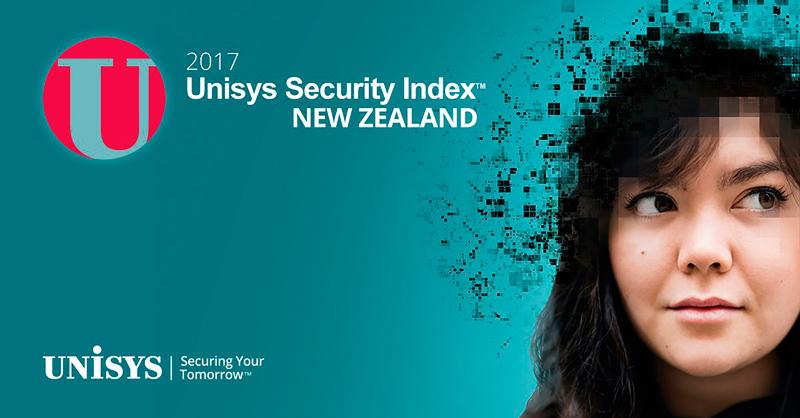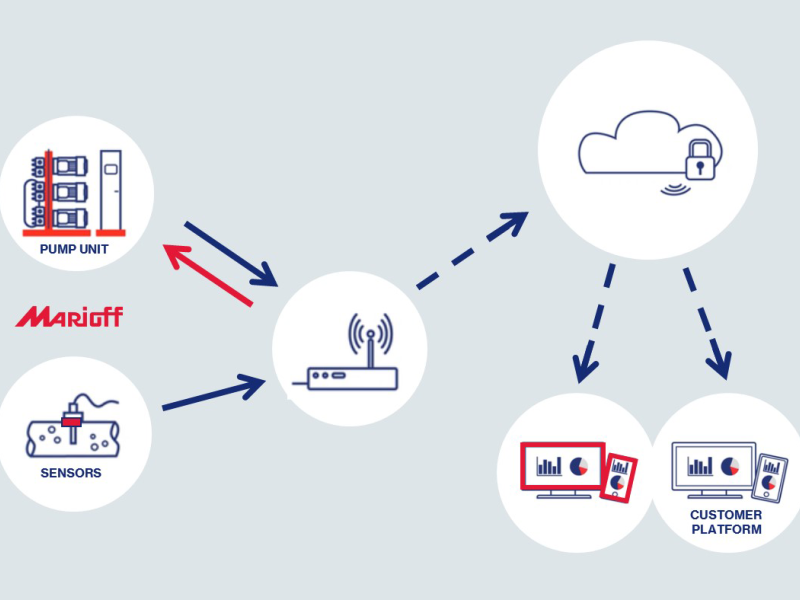New Zealanders are selective about the circumstances in which they support sharing personal data with government agencies and commercial organisations via the Internet of Things (IoT) – according to the 2017 Unisys Security Index.
The Unisys Security Index is a global study that gauges the attitudes of consumers on a wide range of security issues. The 2017 study examined how willing New Zealanders are to share data with organisations via data analytics and IoT – where devices can send information to other devices or systems via the Internet. The study polled 1,012 adults in New Zealand during April 2017.
The vast majority of New Zealanders, 84%, support using a button on their smartphones or smartwatches to alert police to their location during emergencies. Yet only 31% support police being able to monitor fitness tracker data anytime to determine their location at a certain time.
The findings indicate that New Zealanders will embrace IoT when they see a compelling reason such as personal safety and medical emergencies. But concerns about privacy and data security suggest they want to be able to control which organisations can access their data.
Most New Zealanders (74% of respondents) support medical devices such as pacemakers or blood sugar sensors automatically transmitting significant changes to a patient’s doctor. And 70 percent support the use of sensors in luggage to advise passengers at airports if their luggage has been unloaded and what carousel it will be on.
Yet many fewer New Zealanders (27%) support using a smartwatch app to make payments, or a health insurer accessing fitness tracker data to determine a premium or reward customers for good behaviour (20%).
“These findings highlight that when it comes to personal data, there is a very delicate balance between privacy, security and convenience – even for organisations generally trusted by the public,” said John Kendall, director of border and national security programs, Unisys. “For example, people are happy to use their smartwatches to alert police to their location when they need help, but they don’t want police to freely access that data at any time – they want to control when they share their data.”
What Are the Barriers to IoT Acceptance?
Of the New Zealanders who say they do not support various IoT applications, most cited privacy and security concerns as key reasons. In particular, many say they would not support an IoT application if they do not see a compelling enough reason to share their data or if they do not want an organisation to have such data about them. Data security is the biggest barrier cited for not supporting a smartwatch payment app.
Richard Parker, vice president financial services, Unisys Asia Pacific says: “To address consumer concern around data security of smartwatch payment channels, banks need a multi-pronged approach that spans technology and policies to secure the data, as well as reassuring customers by communicating the steps taken by the bank to protect them – a fine line in delivering a frictionless customer experience whilst making sure they are secure.”
Which Wearable Biometrics Do Kiwis Support?
Wearable biometrics technology that analyses human characteristics to confirm an identity or monitor critical medical data are part of the IoT phenomenon.
The vast majority of New Zealanders support police or border security staff wearing facial recognition body cameras to identify criminals or terrorists who are on watch lists (78%) or medical sensors transmitting significant changes to a patient’s doctor (75%).
The survey results also showed that fingerprint scans on smartwatches could address security concerns around payment apps. “Approximately half of Kiwis (51%) support a fingerprint scan to control access to data on a smartwatch or to authorise a payment from the smartwatch (47%), with support increasing with age. This is a clear signal to banks that biometrics could help alleviate consumer concerns about smartwatch payment channels,” says Parker.
While 49% of New Zealanders support airline staff wearing facial recognition glasses to verify the identity of passengers boarding aircraft at airports, only 24% support the same glasses being used to identify VIP customers for special treatment.
Kendall explains: “Kiwis see it as a trade-off: ‘Is there a compelling enough reason for that organisation to capture this information about me?’ The findings reveal law enforcement, national security and serious medical conditions are considered acceptable justification, but customer loyalty programs and employee tracking are not – the impact on privacy outweighs the personal benefit.”
Support for Data Analytics Varies
Support for analysis of data collected from a range of sources also varies – even among different government agencies. Fifty-seven percent of New Zealanders support border security officers analysing the travel history of passengers, and those whom they are travelling with, to determine if they are eligible for fast-track border clearance. Yet only 42 percent support welfare agencies accessing personal spending data from credit card records and insurance policies to verify if benefit claims are legitimate. And even fewer (21%) support the tax office using the same data to verify income tax returns.
Furthermore, the majority of New Zealanders do not support data analytics being used to sell goods and services to them. Sixty-four percent do not support banks monitoring individual customer spending behaviour to offer related products such as insurance for items they have purchased. And 62%do not support shop assistants using facial recognition glasses to identify loyalty program members.
Parker explains that organisations that use data analytics must be sensitive to customer concerns. “Customers expect businesses to know them based on the history of their relationship. In a world where interactions may cross a range of channels and not just in person, many organisations are turning to data analytics to provide extra insight. Ironically, while they may be trying to improve the customer experience, if businesses cross the line and appear to invade customers’ privacy by revealing that they know more about them than what the customer has knowingly shared, it just turns the customer off. Technology alone is not enough; it must be used in the context of understanding human nature and cultural norms.”
The 2017 Unisys Security Index is based on online surveys conducted between April 6-18, 2017 of nationally representative samples of at least 1000 adults in Argentina, Australia, Belgium, Brazil, Colombia, Germany, Malaysia, Mexico, Netherlands, New Zealand, Philippines, the U.S. and the UK. The margin of error at a country level is +/-3.1% at 95% confidence level, and 0.9% at a global level.






